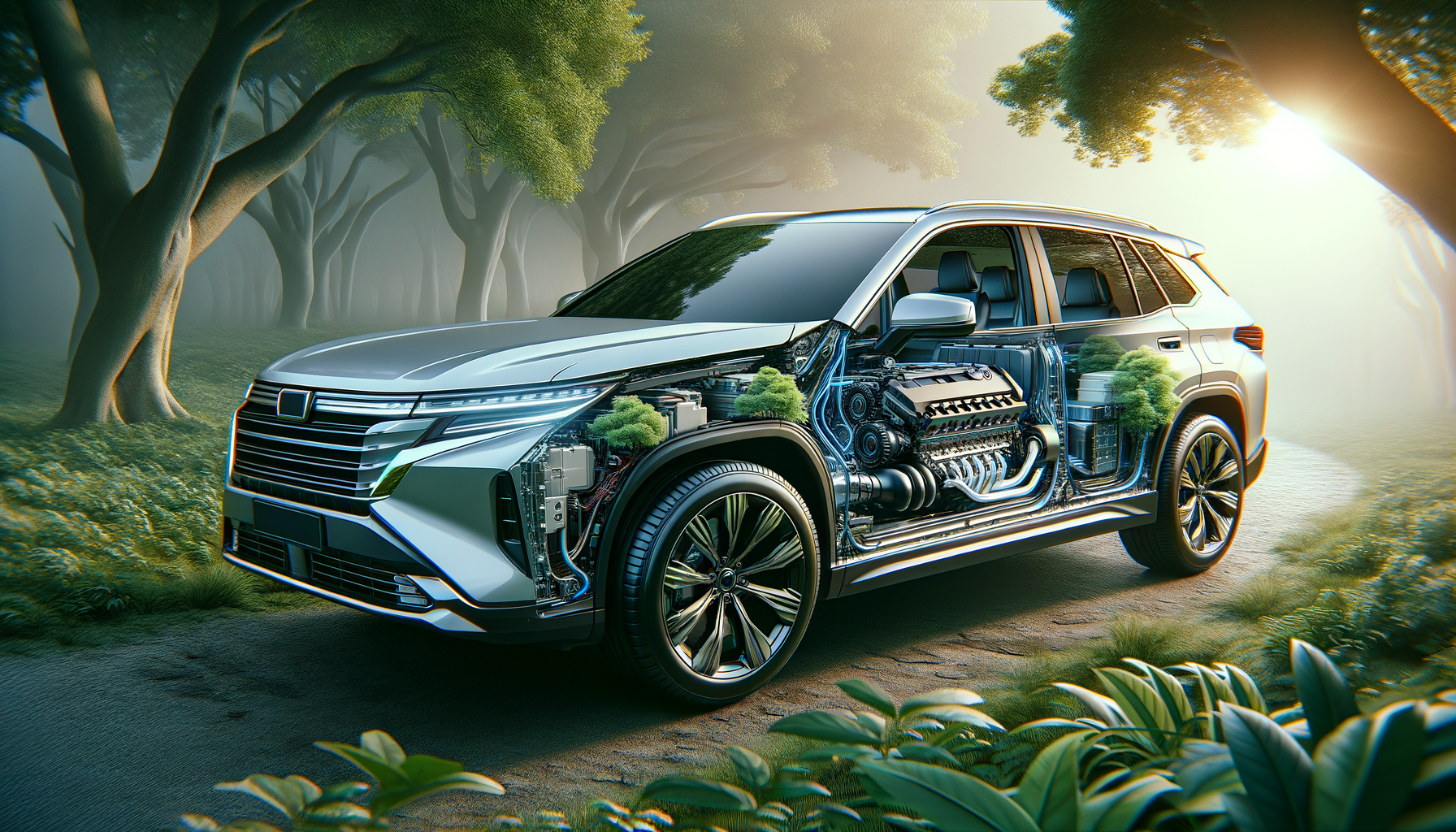
Guía práctica para conocer las funciones clave del nuevo SUV híbrido
Innovative Design in Hybrid SUVs
Hybrid SUVs have carved a niche in the automotive industry, combining the robustness of traditional SUVs with the eco-friendly technology of hybrid systems. The design of these vehicles is both practical and appealing, aiming to meet the diverse needs of modern drivers. A key feature of hybrid SUV design is the integration of aerodynamic elements that enhance fuel efficiency while maintaining the rugged aesthetic synonymous with SUVs. This balance is achieved through sleeker body lines, advanced materials, and innovative engineering that reduce drag and improve overall performance.
Inside, the design focuses on comfort and functionality. Spacious interiors provide ample room for passengers and cargo, while high-quality materials ensure a luxurious feel. The dashboard is typically equipped with the latest technology, including touch-screen interfaces and digital displays that offer real-time information about the vehicle’s performance. The seating arrangement is often flexible, with options for folding or sliding seats to maximize space for various needs.
Moreover, hybrid SUVs often feature cutting-edge safety technologies. These include adaptive cruise control, lane-keeping assist, and collision avoidance systems, ensuring a safer driving experience. The combination of these design elements not only enhances the vehicle’s appeal but also aligns with the growing demand for sustainable and practical automotive solutions.
Energy Efficiency in SUVs
Energy efficiency is a critical aspect of modern SUVs, especially as environmental concerns continue to grow. Hybrid SUVs offer a compelling solution by combining traditional combustion engines with electric motors, significantly improving fuel economy. This dual-power system allows the vehicle to switch seamlessly between fuel sources, optimizing energy use based on driving conditions.
One of the standout features of hybrid SUVs is regenerative braking. This technology captures energy usually lost during braking and converts it into electricity to recharge the battery. This process not only enhances efficiency but also extends the vehicle’s range, making it a practical choice for both city and long-distance driving.
Additionally, hybrid SUVs are equipped with eco-driving modes that adjust the engine and transmission settings to minimize fuel consumption. These modes are particularly useful in urban environments where stop-and-go traffic can otherwise lead to increased fuel use. By prioritizing energy efficiency, hybrid SUVs offer a sustainable alternative without compromising on the power and performance expected from traditional SUVs.
The Hybrid System in Automobiles
The hybrid system in automobiles represents a significant advancement in automotive technology, merging the benefits of electric and gasoline engines. At its core, a hybrid system includes an internal combustion engine, an electric motor, and a battery pack. These components work together to deliver power to the vehicle’s drivetrain, optimizing performance and efficiency.
One of the primary advantages of a hybrid system is its ability to operate in multiple modes. For instance, during low-speed, city driving, the vehicle can rely solely on the electric motor, reducing emissions and fuel consumption. Conversely, the gasoline engine can provide additional power when needed, such as during highway driving or when accelerating rapidly.
Hybrid systems also feature intelligent energy management systems that monitor driving conditions and adjust power distribution accordingly. This ensures that the vehicle operates efficiently, regardless of the terrain or driving style. Furthermore, the integration of hybrid technology into SUVs has expanded the market for eco-friendly vehicles, offering consumers a wider range of choices that align with their environmental and performance preferences.
Comparing Hybrid SUVs to Traditional Models
When comparing hybrid SUVs to their traditional counterparts, several key differences stand out. Firstly, hybrid SUVs typically offer superior fuel efficiency due to their dual-engine systems. This not only reduces the frequency of refueling but also lowers the overall cost of ownership over time. In contrast, traditional SUVs rely solely on gasoline engines, which can be less efficient, particularly in urban driving conditions.
Another significant difference is the environmental impact. Hybrid SUVs produce fewer emissions, contributing to better air quality and reduced carbon footprints. This is a crucial consideration for environmentally conscious consumers looking to minimize their impact on the planet.
Performance-wise, hybrid SUVs often deliver a smooth and quiet ride, thanks to the electric motor’s ability to operate silently. This contrasts with the more robust sound of traditional combustion engines, which some drivers may find less appealing. However, both hybrid and traditional SUVs offer similar levels of comfort, space, and safety features, ensuring that consumers do not have to sacrifice these aspects when choosing a more eco-friendly option.
Future Trends in Hybrid SUV Development
The future of hybrid SUVs looks promising, with ongoing advancements in technology and design. Manufacturers are continually exploring ways to enhance the efficiency and performance of hybrid systems, including the development of more powerful and longer-lasting batteries. These improvements are expected to increase the range and reduce charging times, further enhancing the appeal of hybrid SUVs.
Moreover, the integration of smart technology is set to revolutionize the driving experience. Features such as autonomous driving capabilities, advanced connectivity options, and enhanced safety systems are becoming increasingly common in hybrid SUVs. These innovations not only improve convenience and safety but also align with the growing demand for intelligent vehicles.
As environmental regulations become stricter, the automotive industry is likely to see a shift towards more sustainable solutions. This trend will drive further investment in hybrid technology, resulting in a broader range of models and options for consumers. Ultimately, hybrid SUVs are poised to play a significant role in the transition to a more sustainable and efficient automotive future.